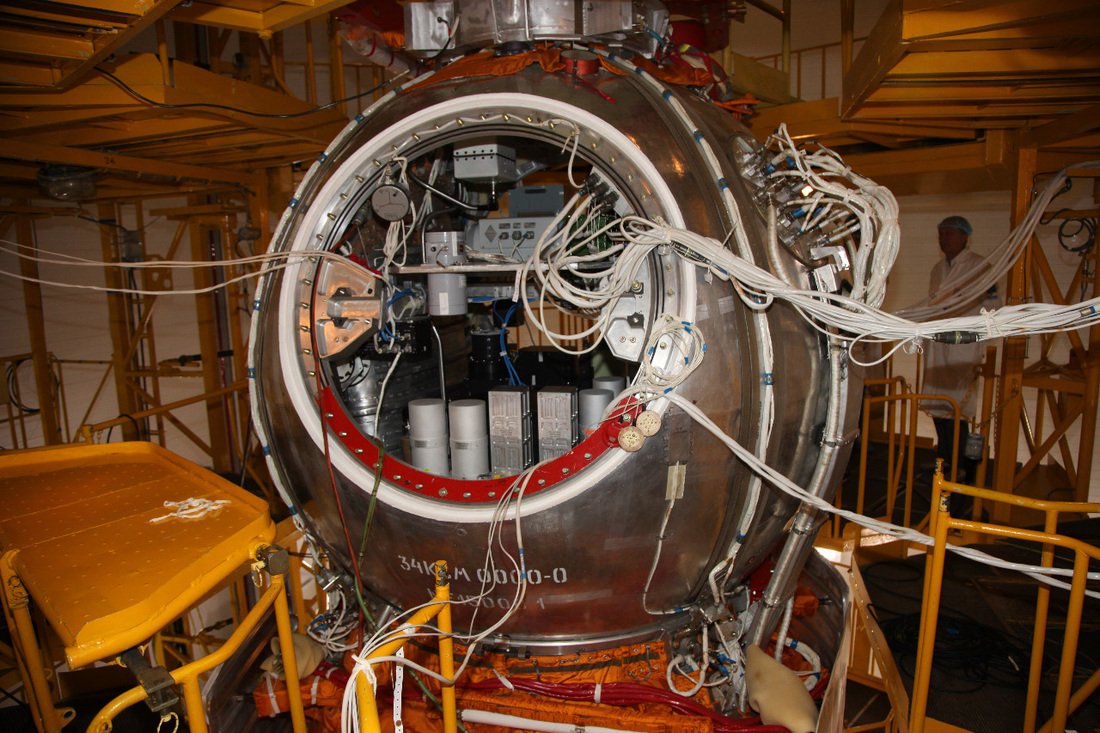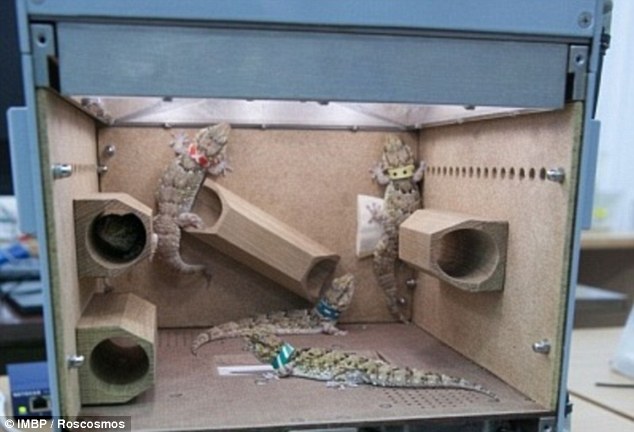Earlier this month Russia launched a satellite carrying five geckos into space to observe their mating activities in the zero-gravity conditions of Earth’s orbit. Various other organisms, including insects and plants were also placed on board for experiments. The satellite, called Foton-M, was launched on July 19th from the Baikonur Cosmodrome in Kazakhstan and is scheduled to re-enter Earth in September.

The Foton-M satellite.
Last week, after making its first few orbits, the satellite stopped responding to commands from mission control, though the equipment on board was still sending scientific data back down to Earth. The biological experiment was thought to be lost, but on Saturday night communication was once again made with the spacecraft, and everything is now going according to plan.

The five geckos are flying in the Gecko-F4 experiment aboard the Foton-M satellite. They’re being observed to see how their bodies and mating behavior are affected by microgravity.
The one male and four female geckos are traveling in a habitat that includes a ventilation system to supply fresh air, food for two months, environmental control in the form of temperature and light, and a waste disposal system. A video camera is being used to monitor the lizards’ behavior and any eggs that may be produced. Since gecko eggs are expected to hatch after 40 days, they’ll most likely do so while the mission is still in space, which is an important goal that would assess the effects of microgravity on birth.
Though floating through space in a satellite may not be the coziest of places, scientists are hoping to observe the critters doing what nature intended. The geckos and their offspring will be examined by scientists when they return to Earth.
Story via dailymail.co.uk
Advertisement
Learn more about Electronic Products Magazine





